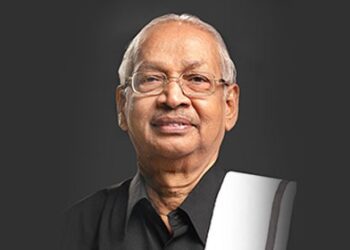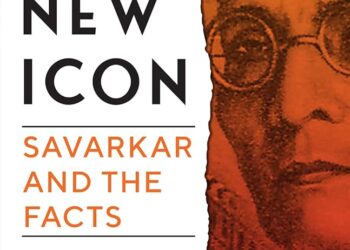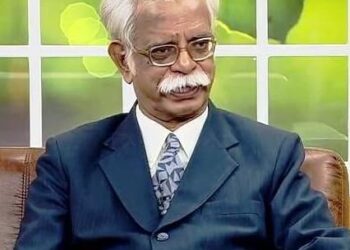The Shudra Rebellion
Kancha Ilaiah Shepherd (Author)
South Side Books, 2024
2nd Edition, November 2024
Price Rs.500/-
In the 18th and 19th centuries, when Europe was borrowing agriculturist philosophy from China, Indian thinking was still under the grip of brahminism. Shudra farmers were not allowed to develop alternative thought. The first shudra thinker who asserted the importance of agriculture and farming was Mahatma Jotirao Phule in the late 19th century. Phule realized that the shudras were denied a philosophical status and were reduced to the status of the gulam (slave). No slave could construct a philosophical school of her/ his own, so long as s/he remains a slave.
Hence, he wrote Gulamgiri placing the shudra farmer in the centre. In yet another important work titled Cultivator’s Whipcord, Phule states “…if we conjecture about the history of all countries in the world, it can be seen that the condition of the ignorant and god-fearing shudra farmers of Hindustan has reached pitiable state than that of farmers of any other country. They have sunk to a condition worse than that of animals.”
During the nationalist movement, reform organizations like the Brahma Samaj, Arya Samaj, and Prarthana Samaj were established by brahmin reformers like Swami Dayananda Saraswathi, Raja Rammohan Roy, and Mahadev Govind Ranade. But they did not give any respectable status to agriculture. Nor did they consider that the production domain was worth a respectable social and spiritual status in their discourses or writings. They brought the same Vedic and Upanishadic philosophical discourses into modernist brahminic engagement. They did not critique the brahminic practice or textual material from the shudra-ati-shudra food production point of view. They did not see anything wrong with the caste system itself.
As against the reform networks of brahmins, Mahatma Jotirao Phule and his wife Savitribai Phule established the Satya Shodhak Samaj (Truth-Seekers’ Society) with a deep agriculturalist philosophical discourse and also with the idea of liberating the shudras and ati-shudras from their historical slavery. Phule’s two books-The Cultivator’s Whipcord and Slavery – were written, keeping the agrarian philosophy of production in the centrality. Perhaps this was a new beginning of the philosophy of agriculturalism getting textualized by focusing on the heritage of shudra production.
Mahatma Phule’s thought did not develop into full-fledged agriculturalism unlike the Chinese school of thought because he had no historical heritage of building a school of thought with a series of writings. No school of thought can develop without systematic writing over a long period. A full-fledged philosophical school emerges only when multiple thinkers write on the same subject.
Though Mohandas Karamchand Gandhi from the Gujarati bania (vaishya) background wrote nationalist philosophy, this had nothing to do with agriculturalism. The nationalist discourse did not root itself in the production ethic and heritage. All dwija nationalist thinkers and writers have drawn heavily from Sanskrit writings of ancient and medieval times. Despite Gandhi’s mass appeal his bania background kept him away from the agriculturist philosophy because of that community’s long disassociation with agriculture. The banias lost touch with agriculture, and Gandhi never studied Chinese history as he studied European history.
Later, Dr B.R. Ambedkar critiqued brahminism but again, not from the agriculturalism point of view. He critiqued his contemporary dwija nationalists, including Gandhi, from the lens of religious morality and caste-cultural exploitation. Of course, Ambedkar opened up a new historical phase in Indian civilization but he was also trained in Western methodology which had not developed any concrete agriculturist philosophy.
THE NEED TO RETURN TO HARAPPAN AGRICULTURALISM
Ever since the Vedic texts were written, pre-Vedic agriculturalism was set aside because agriculturalism essentially survives on farm production, communitarianism and egalitarianism.
Indian brahminism inherently opposed communitarianism, as this plays a key role in the advancement of agriculturalism and also promotes human equality. Communitarianism will not allow caste culture to operate in any field of life. Since the Vedas brought in a four-fold varna (caste-class) division which is not based on the division of labour, but based on the spiritual and social authority of brahminism over the shudras, this division negated the progress of agriculturalism and thereby hindered Indian advancement into modernity.
But India had a long history of agriculturalism in the Harappan civilization, where early experiments in agriculture production started. During the Vedic times the former Harappans were declared as shudra slaves. After this, civilization was either destroyed or died of its own accord, the newly enslaved shudras were rendered as people who were not be given any spiritual rights by the migrant Aryans. They, as we have seen in several texts, kept agriculturalism in the domain of spiritual untouchability. The same ideological framework is adopted by the RSS and Hindutva ideologues in modern times. Their nationalism is as brahminic as that of ancient Sanskrit spiritualism.
MODERN KAUTILYA AND MANU
The parampara of Kautilya and Manu was continued by Savarkar and Golwalkar through their writings in modern times. The Hindutva school with its overt ideology of enmity to religions like Christianity, Islam and Buddhism covertly continues the structural ideology of anti-agriculturalism.
Though they constructed their ideology in terms of nationalism, advancing agrarian production was never part of their discourse. Their literary works are mainly about Hindu religious nationalism and Islam and Christianity. No nation can be built through religion, whatever that religion. It is production that works as the primary source of nation-building. Spiritual and cultural institutions only add to national values if they are not divisive and violent. Culture cannot exist independently of the production process of a nation. From field to kitchen, agrarian goods and commodities construct a cultural ethos.
The food cooked in the kitchen comes from the field as a product of the labour power of a social mass. The shudras/dalits and adivasis constitute the real social mass of India which generates national wealth. Agriculturalism as a philosophical school, constructs, and communicates a variety of ideas that enrich and radically democratize civil society.
AGRICULTURAL SCIENCE
There is a globally validated (except in brahminism) spiritual view that god commanded humans to labour on the land, produce from it and live a long life by eating the produce. This is a scientific spiritual dictum. Farmers across the world have an innate philosophical approach to life. Even in India, the farming communities engaged with the philosophical discourse of regeneration and this is important for human survival. The Indian agrarian philosophy, though, was a living phenomenon and was never systematically codified into a text.
Once they became conscious, the shudra producers of India were capable of advancing the philosophy of agriculturalism with constant interaction with land, plant and animal. This philosophy, however, is in an oral form as they did not write it into texts. Our agricultural universities are not structurally suitable for advancing agriculturalism as a philosophy, because they are full of brahminism.
Agriculturalism is based on reason and scientific engagement with soil, seed, and animal; thinking has to be out of the box. Agricultural operations do not wait for brahminic muhurthams. The brahminic books wrote principles that conditioned the consciousness of the shudras in such a manner that they lost the will to challenge these principles.
This is what Manu, for example, told the shudras. Their work in agriculture was never seen as work.
Ch 10. Ve 123. The service of the brahmanas alone is declared to be an excellent occupation for a shudra; for whatever else besides this he may perform will bear no fruit.
Ch 10. Ve 129. No collection of wealth must be made by a shudra, even though he is able to do it; for a shudra who has acquired wealth gives pain to brahman.
No shudra wrote anything against this barbaric statement of Manu till Ambedkar researched and repudiated Manu. Despite the long history of writing by brahmins, none of them wrote condemning these ideas.
Both during the Congress regime and after the Bharatiya Janata Party came to power in 2014, agriculture remains the most neglected area of administration, as it is not part of their philosophy. Unless the shudras rebel against such an oppressive ideology, brahminism will not die down. Unless a strong school of agriculturist philosophers emerges from the shudra/OBC background, such an ideological rebellion will not take shape. Any physical rebellion will not be able to challenge the deeply embedded brahminic philosophical conditioning of shudras.
Indian villages and adivasi hamlets still have very strong footprints of the early civilization. Stories about these civilizations still survive in the memories of people. There are several studies of ancient, medieval, and modern temples but none about the production tools, technologies, or knowledge systems of production processes. People’s perception of soils, seeds, water resources, and the development of agricultural techniques can become a great wealth of our history. We need to record this knowledge much before its links to the past are erased because of technological advancements in a globalized world.
(Reproduced with due permission from the author, Dr. Kancha Ilaiah Shepherd)









